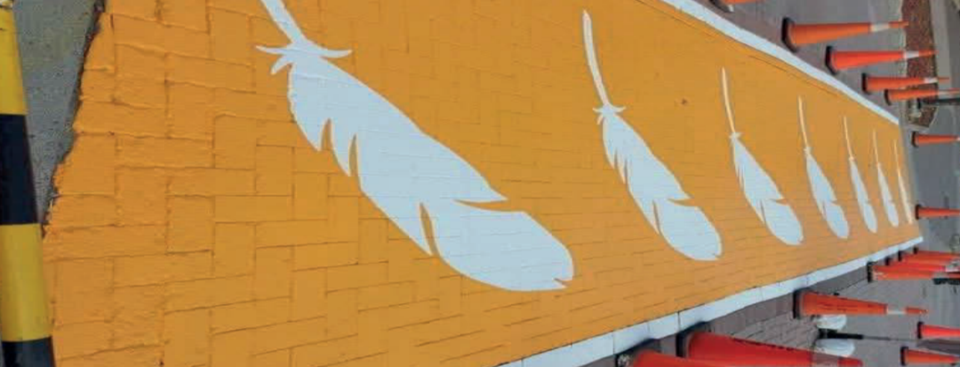Please note this piece includes information about residential schools that may be triggering for readers.
A moving presentation by Garry Feschuk, whose ancestral name is ?akista xaxanak, and other representatives of the syíyáyá Reconciliation Movement Project opened the May 18 Sechelt council meeting. The group is organizing a crosswalk art installation at the T’sain-Ko Mall and Sechelt Hospital intersection. The project is to honour residential school survivors and acknowledge the legacy of residential schools in Sechelt.
Plans are to unveil the work on Sept. 30, the National Day for Truth and Reconciliation and Orange Shirt Day.
“The movement wants to do something positive for the survivors,” Feschuck said. He described an emotional task facing the shíshálh Nation. A search for unmarked graves of former residential school students using ground-penetrating radar has been launched in areas near the location of the former St. Augustine’s Indian Residential School, which operated from 1904 to 1975.
“We know we are going to find some,” he stated, noting that local elders have provided anecdotal evidence about children who did not return from the school to their families.
The pedestrian crossing’s design will feature white feathers as well as impressions of children's hands and footprints. Included will be the words “Our ancestors are watching.”
Project costs are estimated to be in the $60,000 range. Feschuck invited the District of Sechelt to be part of the effort and events planned to “journey together towards reconciliation."
Mayor Darnelda Siegers thanked the delegation for the presentation and referred the matter to staff to explore options regarding financial and other participation in the project.
Survivors and those impacted by residential schools can call the 24-hour national Indian Residential School Crisis Line for support services: 1-866-925-4419. Support is also available through Hope for Wellness helpline at 1-855-242-3310 or at hopeforwellness.ca.



